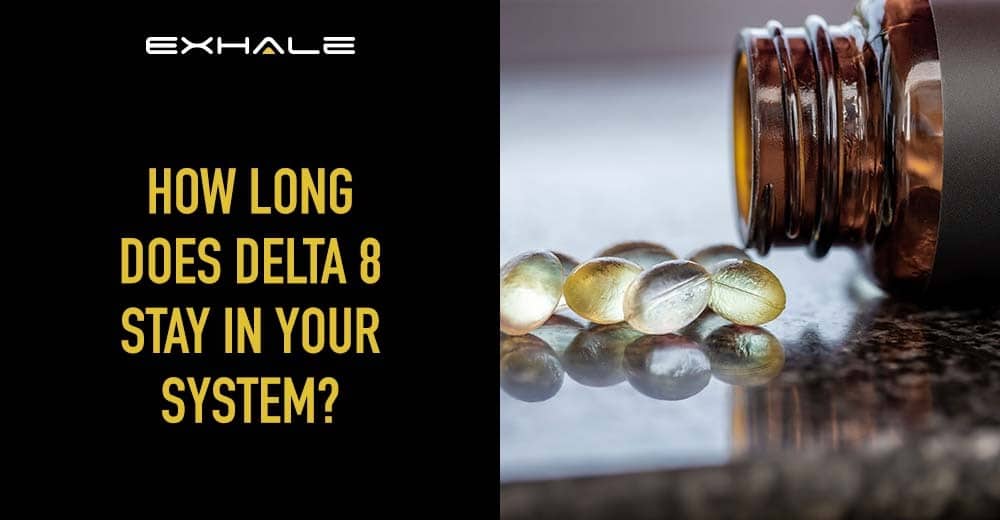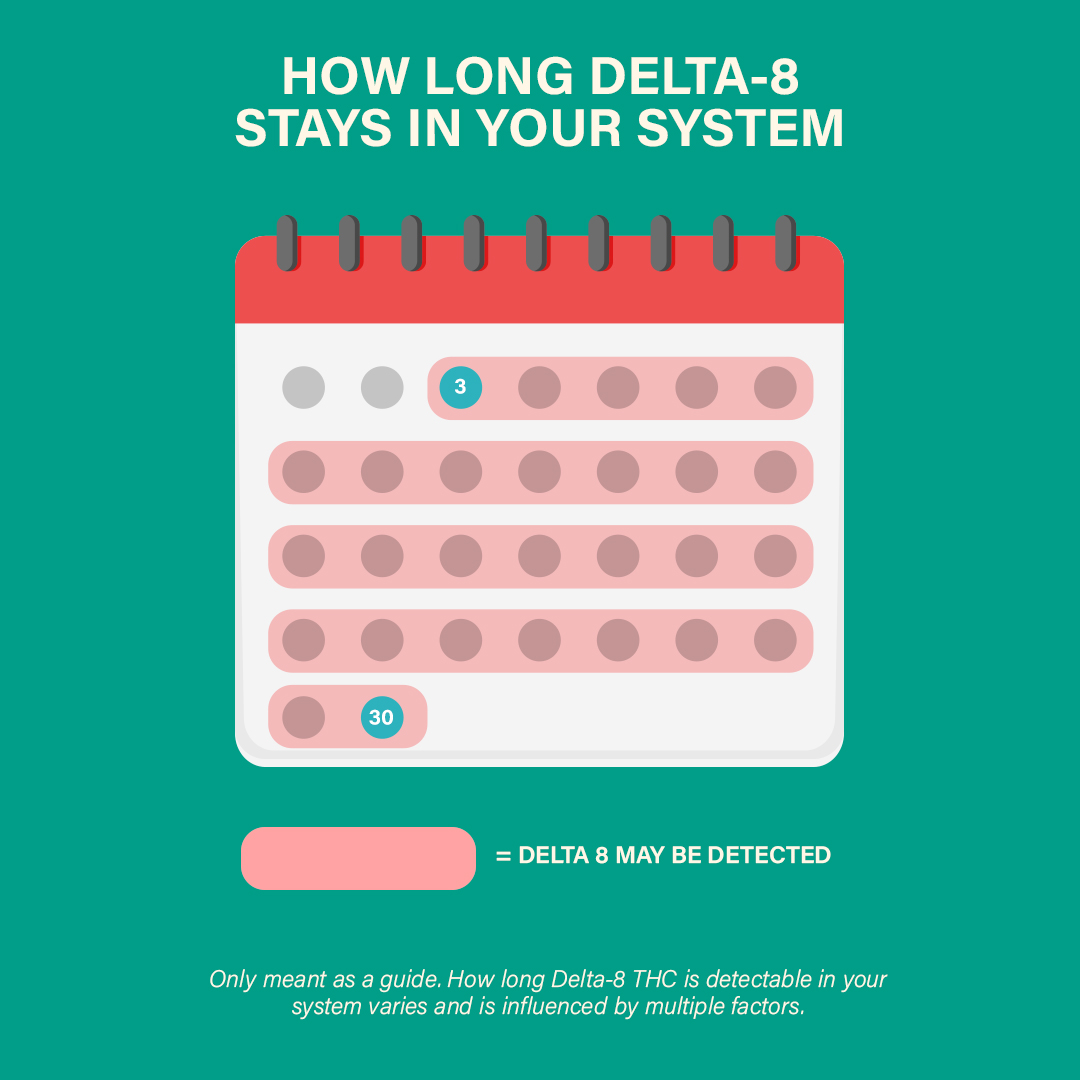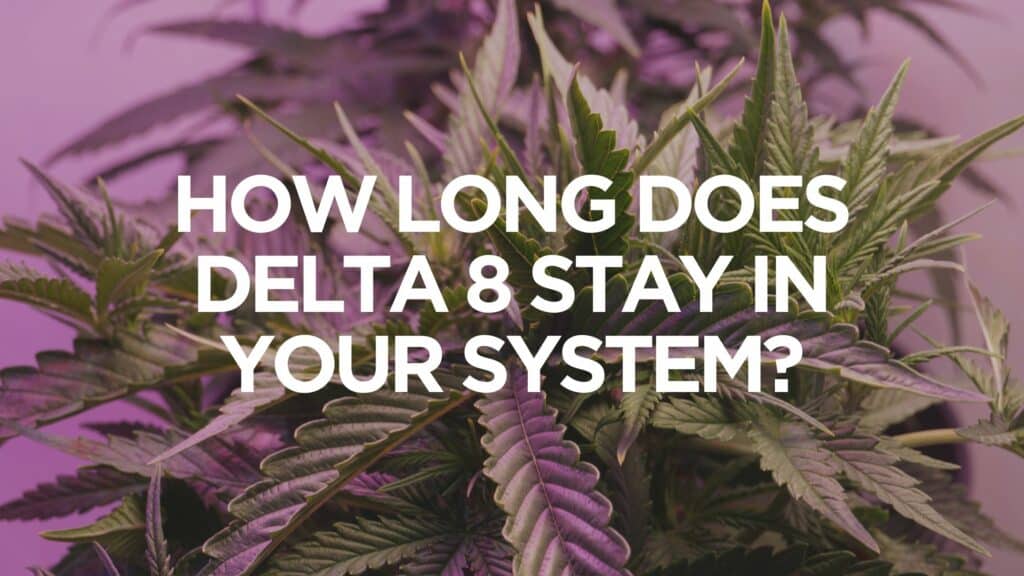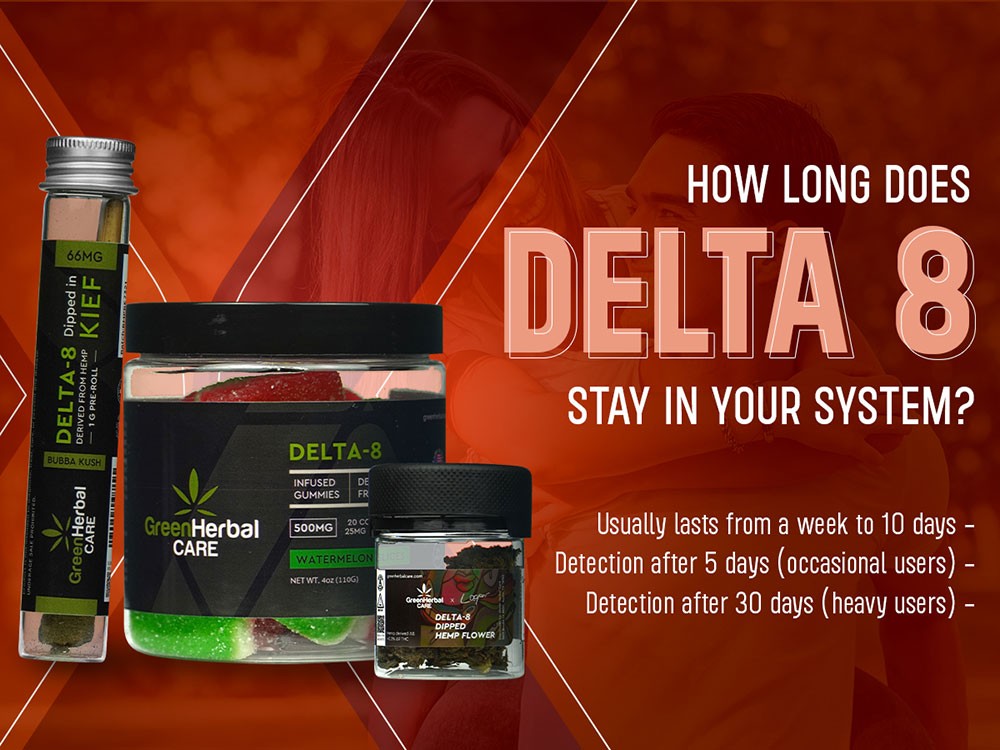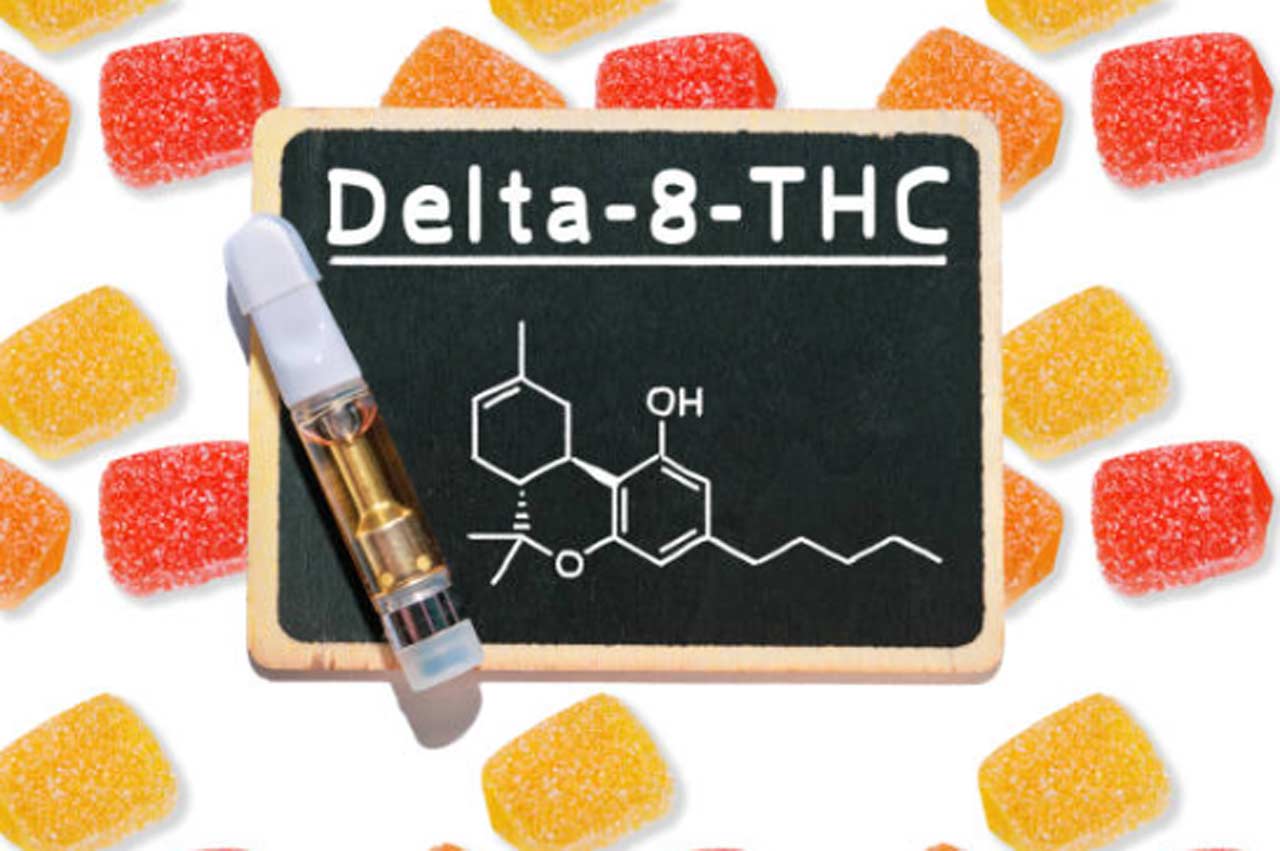How Long Does Delta-8 Stay In Your System

Imagine a warm summer evening, laughter echoing around a backyard barbecue. The smell of grilling burgers mixes with the sweet scent of honeysuckle. Someone mentions Delta-8, a topic that sparks curiosity and a few hesitant questions. How long does it linger? What are the implications?
Understanding how long Delta-8 stays in your system is essential for anyone considering its use, whether for recreational or therapeutic purposes. This article will explore the factors influencing its detection window, delve into testing methods, and offer guidance for making informed decisions about Delta-8 consumption.
What is Delta-8?
Delta-8 THC, or Delta-8-tetrahydrocannabinol, is a psychoactive cannabinoid found in the cannabis plant. It's chemically similar to Delta-9 THC, the primary psychoactive component of marijuana, but with a slightly different atomic arrangement.
This difference results in milder psychoactive effects compared to Delta-9, often described as more relaxing and less anxiety-inducing. Delta-8 products have gained popularity as a legal alternative in areas where Delta-9 is restricted.
The Science of Metabolism
The duration Delta-8 remains detectable depends heavily on individual metabolism. Metabolism is the process by which your body breaks down substances.
Factors like age, weight, activity level, and overall health all play a role. A faster metabolism generally means a shorter detection window.
Enzymes in the liver, primarily the cytochrome P450 system, are responsible for metabolizing Delta-8. The resulting metabolites are then eliminated from the body through urine and feces.
Factors Influencing Detection Time
Several factors besides metabolism influence how long Delta-8 remains detectable in your system.
These include frequency of use, dosage, and the method of consumption. Infrequent users will typically clear Delta-8 faster than those who consume it regularly.
Higher dosages and more frequent use lead to a build-up of Delta-8 and its metabolites in the body, extending the detection window.
Frequency and Dosage
Chronic users can expect Delta-8 to remain detectable for a longer period. This is because the body needs more time to process and eliminate the accumulated cannabinoids.
A single, low dose of Delta-8 will likely be undetectable within a few days for most individuals. On the other hand, daily users might test positive for several weeks after ceasing use.
Edibles, for example, are metabolized differently than inhaled products. They can lead to longer detection times due to a slower absorption rate.
Testing Methods and Detection Windows
Various testing methods are used to detect Delta-8 and its metabolites. The most common include urine tests, blood tests, saliva tests, and hair follicle tests.
Urine tests are the most frequently used due to their relatively low cost and ease of administration. These tests typically detect Delta-8 metabolites for up to 30 days in chronic users.
Blood tests have a shorter detection window, usually detecting Delta-8 for only a few days after the last use. Saliva tests offer a similar detection window to blood tests.
Hair follicle tests have the longest detection window, potentially detecting Delta-8 use for up to 90 days. However, they are generally less common due to higher cost and concerns about accuracy.
Navigating Delta-8 Use Responsibly
If you are subject to drug testing, it's crucial to understand the potential implications of Delta-8 use. Employers, sports organizations, and legal entities may have policies regarding cannabinoid use.
Be transparent about your Delta-8 use if required to undergo drug testing. Knowing the testing policies and detection windows can help you make informed decisions.
Always purchase Delta-8 products from reputable sources that provide third-party lab testing results. This ensures product quality and accurate labeling.
Factors to Consider Before Use
Consider potential interactions with medications you are currently taking before consuming Delta-8. Consult with a healthcare professional for personalized advice.
Be mindful of the legal status of Delta-8 in your area, as regulations vary. Some states have explicitly banned or restricted its sale and use.
Start with a low dose and gradually increase it as needed to gauge your individual tolerance. This minimizes the risk of unwanted side effects.
Future Research and Implications
Research on Delta-8 is still evolving, and more studies are needed to fully understand its effects and detection times. Ongoing research will likely provide more accurate data on metabolism and detection windows.
As Delta-8 becomes more prevalent, it's crucial to have clear guidelines and regulations regarding testing and use. This will help ensure fairness and safety for all individuals.
The future of Delta-8 depends on responsible use, informed decisions, and continued research. By staying informed and making conscious choices, we can navigate the evolving landscape of cannabis-derived products safely and effectively.
It's important to note that Delta-8 can potentially trigger positive results on standard drug tests designed to detect Delta-9 THC. This is because many drug tests look for metabolites common to both compounds.
Always consult with a healthcare professional or relevant authority for personalized advice and information on drug testing policies.
As the sun sets, the backyard gathering winds down. The conversation about Delta-8 fades, but the newfound knowledge lingers, empowering everyone to make informed choices with confidence and clarity.
